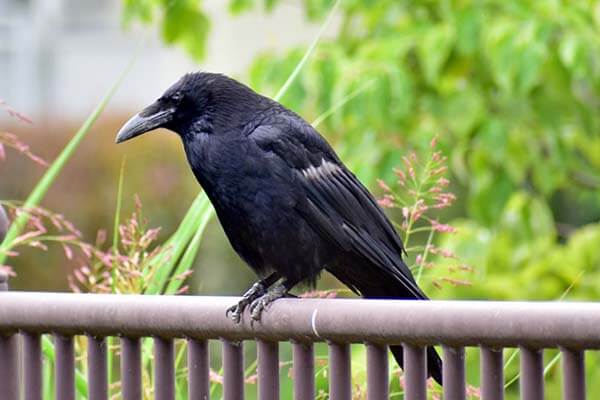
crow, (genus Corvus), any of various glossy black birds found in most parts of the world, with the exception of southern South America. Crows are generally smaller and not as thick-billed as ravens, which belong to the same genus.
A large majority of the 40 or so Corvus species are known as crows, and the name has been applied to other, unrelated birds. Large crows measure about 0.5 metre (20 inches) long, with wingspans that can reach 1 metre (39 inches).
Crows feed chiefly on the ground, where they walk about purposefully. They are omnivores that enjoy meat and may even attack and kill young, weak animals. This habit makes them unpopular with farmers, as does the bird’s propensity to raid grain crops.
Berries, insects, the eggs of other birds, and carrion are also eaten. Crows will make off with shreds of roadkill and store tidbits in trees, caching the meat like a leopard does for later consumption.
Sometimes they bury seeds or store them in crevices in bark. They occasionally steal food from other animals, sometimes cooperating with other crows to raid food from otters, vultures, and water birds.
Crows live in large, close-knit families, and, like social mammals, they not only hunt and forage together but also defend territories and care for the young together. Most species, however, do not nest in colonies. Each mating pair has its own nest of sticks and twigs, usually high up in a tree.
There are laid five or six greenish-to-olive eggs, with darker speckles. Young crows may spend up to six years with their parents before breeding on their own. As winter approaches, northern crows gather into large night-roosting groups.
These flocks can include tens of thousands of birds and occasionally hundreds of thousands. Possible reasons for this seasonal gregariousness are warmth, protection against predators such as owls, or information exchange. A crow may live 13 years in the wild and more than 20 years in captivity.
Highly intelligent, crows can be masterful mimics. They have been trained to count aloud up to seven, and some crows have learned more than 100 words and up to 50 complete sentences; others have been known to mimic their owners’ voices in order to call dogs and taunt horses.
They also exhibit great curiosity, fueling a reputation as inventive pranksters and calculating thieves. They fly off with people’s mail, pull clothespins off lines, and make off with unattended objects such as car keys.
Two species—the New Caledonian crow (C. moneduloides) and the ‘alalā, or Hawaiian crow (C. hawaiiensis)—use stick-type foraging tools to obtain food from small holes and crevices. Such sophisticated tool use is only practiced by a handful of animal species.
These birds are super territorial and will chase birds twice their size if they get near their nests. So you could say crows fear mockingbirds. Humans also scare crows, which makes sense considering we are their biggest predator. Sometimes, people are just downright mean to animals, and crows are no exception